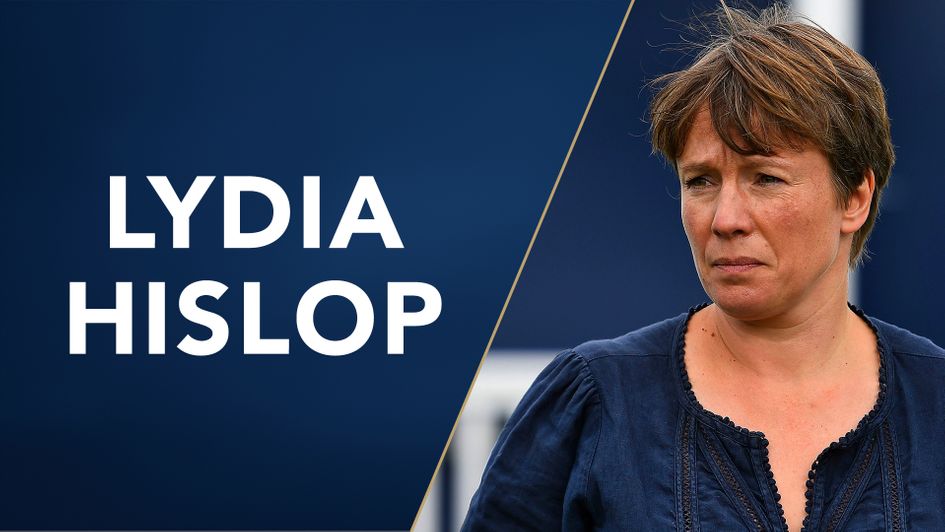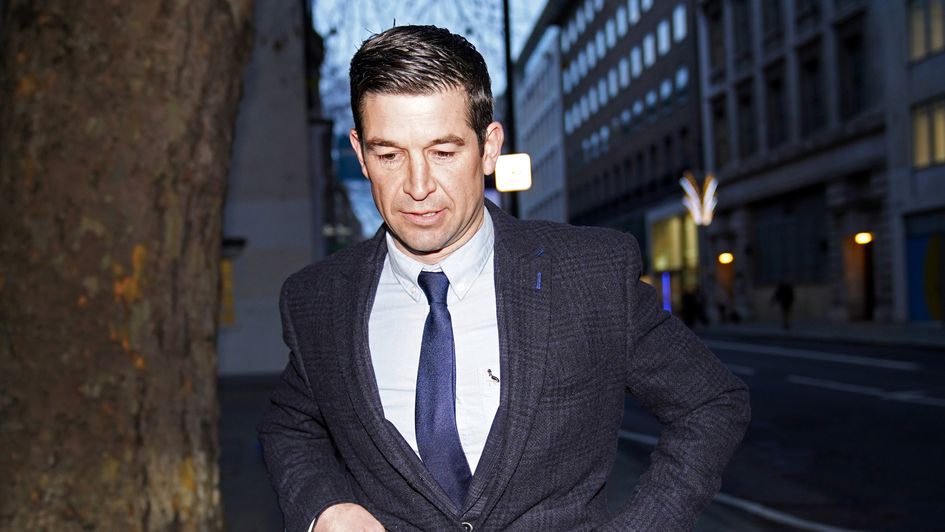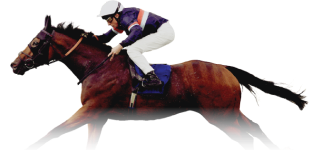Lydia Hislop comments on the Robbie Dunne appeal hearing after his ban for bullying Bryony Frost was reduced to 10 months from 18 months this week.
After just 20 minutes of Wednesday’s Appeal hearing, any sensible bookmaker would have slashed to prohibitively short odds the likelihood of a reduction in the penalty. This was the first indication these proceedings would be conducted in a tone inappropriate to the matter at hand, actively undermining the perception of the justice they endeavoured to pursue.
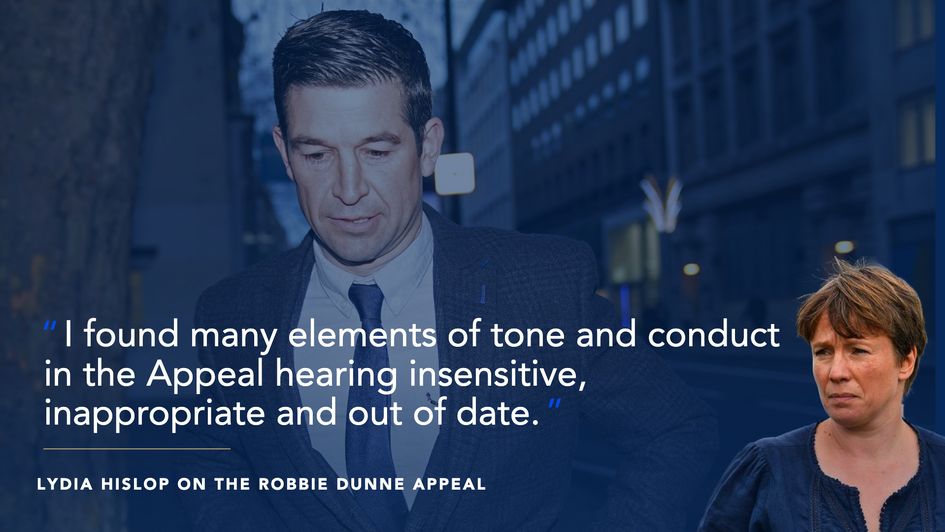
Thus, at the British Horseracing Authority’s High Holborn headquarters, Robbie Dunne contested the 18-month ban handed down in December by the independent Disciplinary Panel for the sexist bullying and harassment of fellow jockey Bryony Frost. His legal team had objected both to the finding and its resultant suspension.
Four hours after its disconcerting introduction, the Appeal was dismissed by the three-man Panel – whose personnel, function and processes are wholly independent from the BHA – but Dunne’s tariff duly knocked down to ten months.
That first tell came when chairman Anthony Boswood QC interrupted the Defence Counsel’s initial case-outline to complain that he had “great problems” with Rule J19. This is the BHA rule ‘Conduct prejudicial to the integrity, proper conduct and good reputation of horseracing in Great Britain’ under which Dunne had been found in fourfold breach.
Boswood could see how it might apply to doping or stopping horses, but not in this case. And – he would repeatedly argue – for Dunne to be found in breach of four counts of J19, given the first count encompassed a time period within which the subsequent three counts fell, was akin to finding a High Court defendant guilty of “both murder and manslaughter”.
It was not apparent this was a line of argument Defence Counsel Robin Mathew QC had intended to pursue. He had hitherto merely asserted that the standard by which the “conduct” referred to in J19 should be judged was against the opinion of Dunne’s peers and other “knowledgeable bystanders”, not by the mores of the Disciplinary Panel, and that the evidence submitted to the Panel had not met the appropriate test in terms of “the balance of probabilities”.
“Deliberate, unwarranted targeting"
No matter. Boswood asked the BHA’s Counsel Louis Weston to address his point, prompting a brief adjournment to gather other examples of J19’s recent deployment and, later, an extended disputation about their relevance to this case.
Indeed, were it not for the positioning of their respective desks, it might at times have been hard to distinguish between the Chair and Defence Counsel, so complementary was their approach to these matters.
When Mathew referred to what happened between Frost and Dunne as “a spat between jockeys”, drawing an objection to the reductive term from Weston, Boswood immediately stepped in to characterise the matter as “a quarrel, or an incident between jockeys”.
Such diminishing language, even before Weston had begun his arguments, seemed to betray from the outset the Chair’s interpretation of what the Disciplinary Panel had contrastingly concluded was “deliberate, unwarranted targeting of a colleague over a considerable time”. This, they said, had “progressed from distasteful targeting, through deliberate harassment on and off the course, to some instances of dangerous bullying”.
Mathew also characterised Dunne’s behaviour towards Frost as insufficient to reach the threshold required by J19, which both he and the Chair felt was inadequately defined. “Mere unpleasantness is not enough,” Mathew asserted – drawing incredulous laughter from Weston, whose accompanying glance towards the Appeal Panel, however, fell on stony ground.
When Mathew sought to question Frost’s credibility as a witness, Boswood helpfully supplied the point for which he was groping. Namely, she had conceded under cross-examination during the initial hearing that, had jockey Tom Scudamore manoeuvred his horse “in the same way” as Dunne had done at Leicester, she wouldn’t have thought anything of it.
Jolly jokes were twice exchanged between Mathew and Boswood on the subject of amateur riding, each seemingly drawing on their experience in this guise. This first came about after Mathew had sought to minimise as coming from “someone of very limited experience” the evidence of amateur jockey Hannah Welch. In contrast, the Disciplinary Panel had described Welch’s evidence as “compelling” and “probative of the allegations” against Dunne.
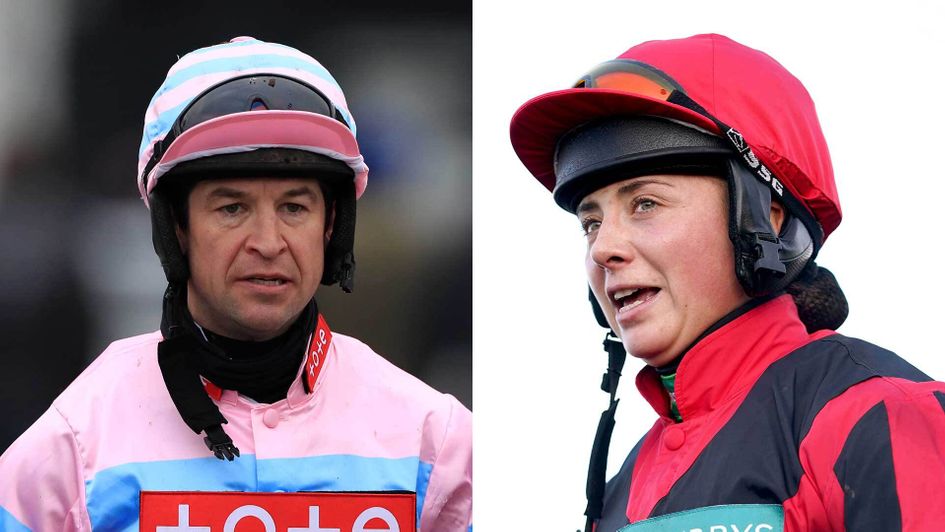
The hilarity resurfaced when Mathew later cited the “thin incident” of Dunne’s derogatory and threatening language towards Frost when he refused to allow her space on his inner at the start of a race at Uttoxeter. Boswood light-heartedly commented: “My dear chap, you’re boxing me in there.” Mathew’s rejoinder was: “I was certainly never allowed on the inside of you, even if I had the courage to go there!”
The Old Boys’ Club tone was also manifest when Boswood and his fellow panellists, Jeremy Philips and Lord Rathcreedan, were troubled to watch an evidential video. The humour pivoted on whether it was worth the Panel’s while to linger on such details. “I’m not saying we won’t see it,” Boswood said, in reference to Weston’s suggestion that it might be informative. “But we were asked whether we wanted to see it.”
The Chair often seemed keen to hurry proceedings along. At one stage, Mathew referred to the bundle of documents he’d submitted to the Panel, in the hope he’d “obviated the need for a lengthy hearing”. “I hope you have,” remarked Boswood. Later, the Chair would advise Mathew: “You’ve already said a good deal about that.” Perhaps he had a train to catch?
Yet the lowest point – in a strong field – of these discordant proceedings came when Mathew, who is also a permit-holding trainer who has employed Dunne on 14 occasions, raised a tweet from that rider that the Disciplinary Panel said was intended to “mock” Frost.
The Old Boys’ Club tone
“Most people would have just let it go,” Mathew opined, “but she was not in the mood to do that.” He then blithely contrasted its intent with the “extraordinarily offensive” things said about him on Twitter when he trained a 50/1 winner at Towcester. Continuing to flirt with sexist tropes, Mathew added that Frost had not in reality been caused “distress or fear” by any of Dunne’s behaviour but was a woman “obviously moved to emotion quite quickly”.
Yet it was Weston’s characterisation of these suggestions as “outrageous” that caused Boswood to object to the language employed, having not once demurred about language that risked being interpreted as a dog-whistle.
In general, whereas Boswood’s manner towards Mathew was to coax, amplify and concur, his attitude towards Weston was combative. It is, of course, beholden on the Panel to test the arguments placed before them but this stark contrast in approach was noticeable.
Prior to Weston’s presentation, when deciding that the attending media, watching online, would be permitted to publish during the lunchbreak, Boswood ruled that we could only report “what had been said” and that it would not be “at all wise” to comment on the case prior to its conclusion.
He suggested that we restrict the use of some “colourful language” – presumably referring to evidence that Dunne had called Frost a “whore”, a “f****** slut” and a “dangerous c***”. Offering an entirely random example purporting to be humour , Boswood then also advised that we should not comment that Mathew had been “tremendously powerful” and Weston (who, at this stage, had barely spoken) “extraordinarily weak”.
On resuming, Boswood queried Weston’s contention that racist language and gender- or sexuality-based slurs are unacceptable “under any circumstances”, suggesting that words said “in the spur of the moment, when one is angry” could be a mitigating factor. He then shifted his argument when Weston countered that this excuse did not fit the particulars.
He parried Weston’s assertion that Dunne had shown “no contrition” for his offences, asking: “Is it unreasonable not to show contrition or remorse for an offence in relation to an offence you say you didn’t commit?”
When Weston countered that Dunne had admitted one breach – to the lesser charge of “verbal abusing or threatening a fellow licensed jockey” at Southwell – Boswood shifted his focus to the jockey’s attempted apology to Frost for his behaviour at Stratford as mitigation overlooked by the disciplinary panel.
Earlier, Boswood had offered support for Mathew’s argument that it was “somewhat odd” for the Disciplinary Panel to “hold against him” Dunne’s attempted apology. “In one sense, it was probative that something had gone too far at Stratford, and it is also to his credit in the sense that he made it,” Boswood observed, before both men exchanged approbation of each other’s points.
Chair and Defence Counsel had also concurred that, as no racegoers were present due to Covid restrictions, Dunne’s behaviour there – and at other times, at the start and in the weighing-room – would not have been widely known until Frost made a complaint. They thus agreed that the Disciplinary Panel taking “the wider public” into account in their findings was not a “good” point.
Near the end of proceedings, Weston asserted there was “nothing wrong” with the Disciplinary Panel’s original judgment but Boswood responded: “Well, it’s a very severe one, isn’t it? 18 months?” “It is, yes, and they say so,” said Weston. “They did not come to it by accident. They take the view that it’s very serious conduct.”
More than once, Weston reminded the Appeal Panel that, unlike the Disciplinary Panel, they had not enjoyed the benefit of hearing evidence first-hand from the various witnesses and thereby using this direct experience to weigh those depositions. Perhaps it is an inevitable drawback to proceedings that are not supposed to be a rehearing, but it was starkly apparent how infrequently the perspective of the unanimously acknowledged victim was considered empathetically.
It is, of course, entirely equitable that a penalty should be reduced if a Defence team is able to provide cogent reasons, however. In this instance, the Panel concluded Dunne should still be found in breach for behaviour they agreed was “reprehensible and disgraceful” but, as Boswood had early indicated, solely under the first count of J19.
They decided that an 18-month tariff was overly severe “given the number of rides Mr Dunne will have lost to date and will lose in the future at this late stage in his career”, and felt he had been given “insufficient credit for items of mitigation”, such as his attempted apology and willingness to participate in a ‘banging of heads together’ at Kempton.
This attempted mediation was facilitated by jockey Richard Johnson and valet Chris Maude after the latter had spoken to Jimmy Frost, but sprung without consultation upon Bryony Frost – who, some lawyers would benefit from being reminded, has agency independent from her father. Why the aggressor should receive credit for agreeing to this proposed course of action is as yet unexplained.
When the Appeal Panel supplements yesterday’s outline reasoning with a full written explanation of its decision in a few days’ time, we will have a better understanding of whether justice has been served. But whatever the content, it cannot erase the live impression that justice was not seen to be served.
Whatever you make of their respective judgments, the contrast with the measured and considered atmosphere that prevailed during last December’s Disciplinary Panel hearing could not have been more marked.
I found many elements of tone and conduct in the Appeal hearing insensitive, inappropriate and out of date. I hope never again to see anything remotely like it in the 21st century.






